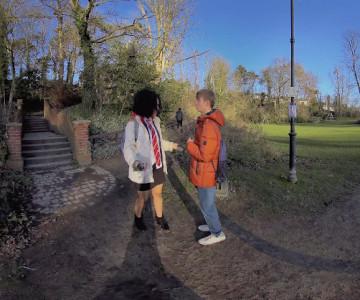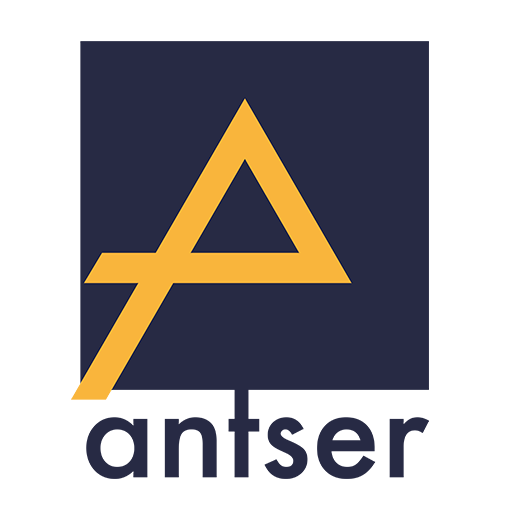EVENT
Latest Headset Update Available
A new software update is available for the VR headsets. This will address glitches such as films moving, accidental deletion, and usability issues. On the Online Mode login screen, check you have new version number v2.8P. Click “How to Update” below for instructions. You will need to redownload Fostering and Aisha - Child Sexual Exploitation. Questions? Contact us at vrsupport@cornerstonevr.co.uk.
EVENT
Reminder! VR Evaluation Resources
Remember to submit evaluations when you use VR with individuals or groups, as this will allow us to measure the impact of VR on your service. Find the evaluation materials you need at the link below.
EVENT
New Knife Crime Content
View and download our newest knife crime films in Online Mode now. You can find the immersive content in the Cornerstone Room > Adolescence (Between Us). Select ‘knife crime’ tab, ‘confirm’ to see all eight films including the new films Stop and Search and Custody Suite A & B.
Resources
FAQs
Meet our characters
Podcasts
Post Course Resources
Session Plans
VR Directory
Webinars
Practice Areas
Below are the areas where VR is currently being used. We have a range of case studies for each area and will continue to develop our library of resources.
VR is being used to support direct work with adolescents and those known to youth offending services through the exploration of themes such as:
- Brain development
- Child sexual exploitation
- Child criminal exploitation
- Healthy relationships and consent
“The young person told the VR practitioner that he did not want to end up in the same situation as Joe (one of the VR characters). Since the VR session, alongside meetings with his youth worker, the young person is attending school every day and their punctuality is improving.”
VR use in parenting and domestic abuse programmes has been independently evaluated by Goldsmith’s University with promising results. Examples of use include:
- Developing awareness and understanding around exploitation with parents, young people and practitioners;
- Incorporating VR into domestic abuse programmes;
- Incorporating VR into parenting programmes;
- Mediation work between parents and young people.
“I felt this was her ‘penny drop moment’. This tool can support people by providing a visual experience and fresh perspective for those in crisis.”
VR is used across the whole of fostering services to strengthen foster carers’ understanding of trauma and its impact on child development.
It has been particularly useful in supporting emotionally fatigued special guardians to understand the benefits of therapeutic parenting styles.
“One experienced foster carer reported the VR course was the first time she stopped and thought about how her own behaviour and actions could directly affect children in her care. She also stressed that the visual element was more engaging than conventional learning approaches.”
VR is used in recruitment, assessment and support processes
to improve prospective adopters’ understanding of development trauma, enabling
them to better understand their child’s needs.
It is also used with panel members, adoption team members, as well
as with adoptive families and their wider networks.
“The VR was helpful [in allowing the adopters] to explore
their daughter’s trauma and how best to support her.”
VR is used with early years and childcare advisors to think about children’s brain development, the impact of trauma and therapeutic approaches.
“It definitely made it more impactful. You can really understand why the child was presenting the way she was due to the impact of what she had been through.”
One health trust has embedded VR intro their Level 3 Safeguarding Training for clinical staff and has since reported a significant increase in referrals to their children’s and adult’s safeguarding teams.
“There’s something about the VR medium that makes you feel it in a different way – physically, in your nervous system, and I think this is an important experiential element that will help my work with adoptive families, staff and my own professional development.”
VR has been used to raise awareness and empathy for police
officers dealing with domestic abuse incidents. It has enabled officers with
the means to view cases through the child’s eyes:
“I will definitely change my approach to dealing with
Domestic Incidents involving unborn children.”
The VR Programme has been embedded in trauma-informed training
across adult services.
“I now have a greater understanding of how childhood trauma has
impacted upon the adults we work with throughout our service.”
VR is currently being used across a number of education settings (early years, primary, secondary, post-16 & virtual schools) in the following ways:
- Whole school trauma-informed training;
- Incorporating into existing training;
- Support and coaching for individual teachers;
- Supporting changes in policy from behavioural to relational.
“One PRU
described a change in attitude and practice from experienced staff, noting they
were more reflective and took time to support the young people following dysregulation.”
VR is embedded in training across a range of service areas and with a broad range of partners. Examples include:
- With newly qualified social work practitioners and ASYEs to support trauma-informed practice and recording skills;
- Reflective supervision;
- Mandatory induction and training;
- Higher education (e.g. social work courses);
- VR training in higher education institutions as part of the social work assessment process;
- Staff recruitment.
“The most thought provoking training course I have attended. VR is such a strong way of feeling lived experience. It was emotive and emotionally exhausting but it has shaped my perspective. I cannot recommend this type of training enough.”
VR is being used to support direct work with adolescents, and those known to youth offending services, through the exploration of themes such as:
- Brain development
- Child sexual exploitation
- Child criminal exploitation
- Healthy relationships and consent
“The young person told the VR practitioner that he did not want to end up in the same situation as Joe (a character in VR). Since the VR session – alongside his meetings with his youth worker – the young person is attending school every day and his punctuality is improving.”
The VR Programme has been embedded throughout recruitment, assessment and support processes to increase understanding for prospective adopters around developmental trauma and contact, enabling them to better understand their child’s needs and their own strengths. It is also used with panel members, adoption team members and the adoptive family’s wider network.
Adoption preparation: “Using VR in Stage 2 helps bring to life children’s experiences of trauma. It also helps adoption applicants to have a deeper understanding of the reason they are asked to use the PACE model when adopting children.”
Post adoption support: “The VR was helpful [in allowing the adopters] to explore their daughter’s trauma and how best to support her.”
The VR Programme has been embedded in trauma-informed training across adult’s services.
Third party content hosted on the platform continues to raise awareness and change perspectives on dementia with carers, family members and professionals.
“I now have a greater understanding of how childhood trauma has impacted upon the adults we work with within our service.”
VR use in parenting and domestic abuse programmes has been evaluated by Goldsmith’s University. Examples of use include:
Developing awareness and understanding around exploitation with parents, young people and practitioners.
Incorporating VR into domestic abuse programmes
Incorporating VR into parenting programmes
Mediation work between parents and young people.
“I felt this was her ‘penny drop moment’. This tool can support people by providing a visual experience and fresh perspective for those in crisis.”
VR is used with early years and childcare advisors to think about children’s brain development, the impacts of trauma and therapeutic approaches.
“It definitely made it more impactful. You can really understand why the child was presenting the way she was due to the impact of what she had been through.”
The VR Programme has been embedded throughout the whole of fostering services from recruitment events to placement support. It is used in individual and group settings to support foster carers in understanding the impacts of trauma on children’s physical and emotional development throughout childhood, adolescence and beyond.
“One experienced foster carer reported that this [VR] course was the first time she stopped and thought about how her own behaviour and actions could directly affect children in her care. She also stressed that the visual element was more engaging than conventional learning approaches.”
VR is currently being used across all schools (early years, primary, secondary, post-16 & virtual schools) in the following ways:
Whole school trauma-informed training
Incorporating into existing training
Support and coaching for individual teachers
Supporting changes in policy from behavioural to relational.
“One PRU described a change in attitude and practice from experienced staff, noting they were more reflective and took time to support the young people following dysregulation.”
VR is embedded in training across a range of service areas and with a broad range of partners. Examples include:
With newly qualified social work practitioners and ASYEs to support trauma-informed practice and recording skills.
Reflective supervision
Mandatory induction and training
Higher education (e.g. social work courses).
VR training in higher education institutions as part of the social work assessment process.
Staff recruitment
“The most thought provoking training course I have attended. VR is such a strong way of feeling lived experience. It was emotive and emotionally exhausting but it has shaped my perspective. I cannot recommend this type of training enough.”
The VR is used in assessments and preparation groups for special guardians and connected persons. It has also been used to re-engage emotionally fatigued special guardians with a therapeutic approach to parenting.
“Both special guardians enjoyed the experience, learning from watching the PACE therapeutic parenting films and better understanding their grandson’s experience. They implemented a less pressured afterschool routine for him and started attending family therapy which they benefitted from.”
The VR Programme has been embedded into training courses for residential staff to raise awareness of contextual safeguarding, exploitation and to focus on relationship-based behaviour management.
“This course has given me an insight into exactly how the young people I work with feel in certain situations. All the information is going to make me a better care worker.”
One partner saw a measurable reduction in physical interventions in two of their education residential settings after using VR in relationship-based training sessions. The content allowed staff to ‘reduce difficult situations by applying their newfound knowledge and increased understanding of certain situations.’
One health trust partner has embedded VR into their Level 3 Safeguarding Training for clinical staff.
There has been a notable increase in referrals to their children’s safeguarding team from mental health professionals.
Their adult safeguarding team has also seen an increase in referrals when children or adults with support needs are part of the family home.
VR sessions have been delivered to frontline police with the aim of achieving better understanding of and responses to domestic abuse incidents.
“Incorporating VR into training will allow local officers to get a deeper understanding of the voice of a child and strengthen safeguarding opportunities.”
About Cornerstone VR, part of The Antser Group
The Antser Group was founded with the aim to achieve positive change for children and families.
Our pioneering VR films allow the viewer to engage with several scenarios that provide insight into the lives of children who have experienced abuse, neglect, and trauma.
Allowing users to step into the shoes of a vulnerable child, our VR Programme accelerates learning as compared to similar non-VR training methods.
Why Virtual Reality?
Virtual Reality (VR) is a transformative technology that immerses users in various experiences, enabling them to step into the shoes of vulnerable individuals and explore different environments.
The PwC report “Seeing is Believing” found that compared to traditional learners, VR learners are:
- 4x more focused
- 4x faster learners
- 275% more confident
For a more in-depth understanding of VR’s impact, explore our library of qualitative reports and Case Studies.
You never really understand a person until you consider things from his point of view - until you climb into his skin and walk around in it.
— Harper Lee

Meet the Team
Serena Hadi
Head of Service
Shalene Lemmie
VR Service Manager
Abby Cooke
VR Service Manager
Mandy Miranda
Lead Trainer
Neil
VR Operations Officer
Into gaming from a young age, Neil discovered a passion for VR in 2017, running a VR arcade where he realised the potential for VR’s application beyond entertainment. Recently joining the Cornerstone team, Neil is looking forward to pushing VR in new and exciting ways.













